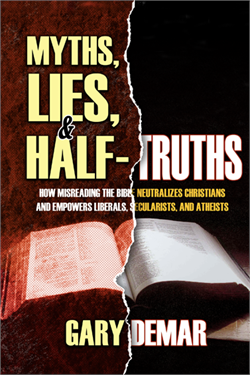Gary addresses the current lack of call to order coming from American pulpits.
America could be reduced to a burned out cinder, yet God’s Church will still go on. Even world-wide disasters (plagues and world wars) did not mark “the end.” As history shows, there have been many who have been premature in writing the obituary of the Church and Christian civilization. The doctrine of the Church is bigger than our nationalist limitations, and it is more powerful and resilient than the most demanding evils. “Over the past five centuries or so, the story of Christianity has been inextricably bound up with that of Europe and the European-driven civilizations overseas, above all in North America. Until recently, the overwhelming majority of Christians have lived in White nations, allowing theorists to speak smugly, arrogantly, of ‘European Christian’ civilization. . . . Already, today, the largest Christian communities on the planet are to be found in Africa and Latin America,”[1] and we can add, China.
The struggles of these “non-White” nations far outweigh the moral and political struggles we are facing in the United States. They have none of our evangelical infrastructure (a church on every corner), but they seem to be making remarkable evangelical progress. Only time will tell what type of evangelicalism is sprouting and how it will be maintained. As long as end-time speculative writings are kept at bay and we continue to believe in the power of the gospel, the future looks bright for these burgeoning Christian nations. There may also be hope for America as well.
The structures are in place to turn our nation around. What do we lack? It’s not money, people, organization, or skills. We lack motivation, knowledge, and vision. Modern-day American Christianity is not what I bought into when I became a Christian. The first light of the gospel brought a dramatic change in my life. Paul’s words about being a “new creature in Christ” (2 Cor. 5:17) were and are real. I believed that what was true for me as an individual was also true for the whole body of Christ. As I’ve traveled around the United States, I’ve watched and listened to what passes for the gospel on “Christian” television and radio, frequented Christian bookstores, endured shelves filled with countless books on “relational” Christianity (“What can Jesus do for me?”), Christian fiction, end-time novels, and VeggieTales and BibleMan DVDs. I have often wondered if Christians really understand the true power of the gospel.

Myths, Lies, and Half-Truths
Our nation is in a crisis. The world is crying out for answers in the face of bewildering and seemingly unsolvable problems. Myths, Lies, and Half-Truths shows that the Bible has real answers to these problems—answers the church is currently ignoring. Christianity's failure to show itself practical in the past 150 years has guaranteed the success of secularism and militant Islam, both of which are doing incalculable harm at home and abroad. The rejection of any type of "this-worldly" application of the Bible has resulted in the proliferation of man-centered worldviews that have steadily drained the life out of our world and left behind a spiritual vacuum.
Buy NowGary addresses the current lack of call to order coming from American pulpits. Too often, pastors think preaching book by book through the Bible is the “right” way to preach and not to be distracted by the events of the day. However, his often leaves congregants unable to deal with what is happening now and unaware of how the Bible relates to current events.
Click here for today’s episode
Click here to browse all episodes of The Gary DeMar Podcast
[1] Philip Jenkins, The Next Christendom: The Coming of Global Christianity (New York: Oxford University Press, 2002), 1–2.

